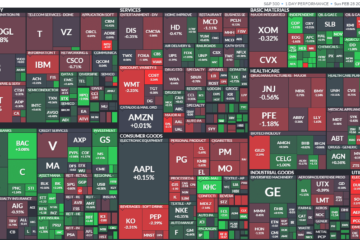Index funds. One of the most widely used and popular investment vehicles. For most investors, they can be the bread and butter of the investing process. Most of us have heard of the importance ofthem as being part of our portfolios. However, most people don’t actually know what an index fund is or why it is important. So let me explain.
(1) What Are Index Funds?
These are really pretty simple. But most financial “experts” have made them WAY more complicated than they really need to be.
Index funds are simply a pooled investment of mutual funds (meaning a bunch of people have bought into it) of a bunch of different companies that track a certain index (some type of benchmark).
They will rarely “beat the market”. This is because an index fund is made to copy the market. That’s it. An index fund won’t do much better or worse than the overall market that it is trying to index (copy).
(2) What Types Of Index Funds Are There?
As I said before, an index fund will track a particular market. But the question is, what market are index funds tracking?
The answer is: whatever market you want.
Here are some index funds that track different markets depending on what you would like to have investment exposure to:
- Broad Funds- This would cast the widest net of companies to invest in. It would be investing in something like the Russell 2000.
- International Funds- This would cover only companies outside of the US.
- S&P 500 Funds- These are the most popular. An S&P 500 index fund would represent the 500 largest companies there are.
- Bond Funds- These would cover various different bond markets. There are several different types of these that achieve a variety of different goals.
- Value Funds- These track companies that are currently undervalued.
- Growth Funds- These track companies that are expected to have higher than average growth in the future (think tech stocks).
- Dividend Funds- These track companies that regularly pay dividends.
- Real Estate Funds- These track various areas of the real estate market or even the real estate market as a whole.
- Environmental, Social and Governance (ESG) Funds- These track companies that have a track record of being environmentally and socially responsible.
- Leveraged Funds- These attempt to achieve an even higher return than the overall market by using various derivative and advanced trading measures. These are generally pretty risky but offer big returns.
(3) What Are The Benefits Of Index Funds?
There are several benefits of index funds. There are several reasons that they have become so popular in the past couple of decades.
- Index funds allow you to purchase tiny slivers of ownership in hundreds of different companies at the same time. Think about it. If you wanted to purchase each individual company you would have to do a ton of research, pay trading fees for each trade for all the companies, and have to watch the financial reports for a ton of companies. They make it WAY easier to invest in each of those companies as one big pooled investment.
- Index funds are diversified. Because you are investing in a bunch of different companies at one time, you will be much more diversified than if you purchased a few companies individually. That way if one company crashes, you’ll be okay because you have a whole bunch of other companies to rely on.
- Index funds are CHEAP. The fees to purchase and own these are WAY lower than other types of investments. (This is my favorite reason to own index funds).
- It’s hard to beat the market. Because most people cannot beat the market by purchasing various stocks, it is better for most people to simply purchase index funds.
- Index funds will usually automatically reinvest dividends. This means that the benefits of compound interest are even greater!
Final Thoughts
I friggin love index funds. I am cheap, no doubt. If given the option, I will pay the smallest fee to purchase something 10 times out of 10. They have that! Also, I don’t have time to sift through 10-k’s and do a ridiculous amount of research on different companies. I rely on other people for that for me (as well as a few other investments).
I use these funds as the bread and butter of my investment strategy. It has worked out well thus far. 🙂
If there is anything else I can do for you, please let me know in the comments!
And as always, please share this article with a friend!
Until next time!



0 Comments